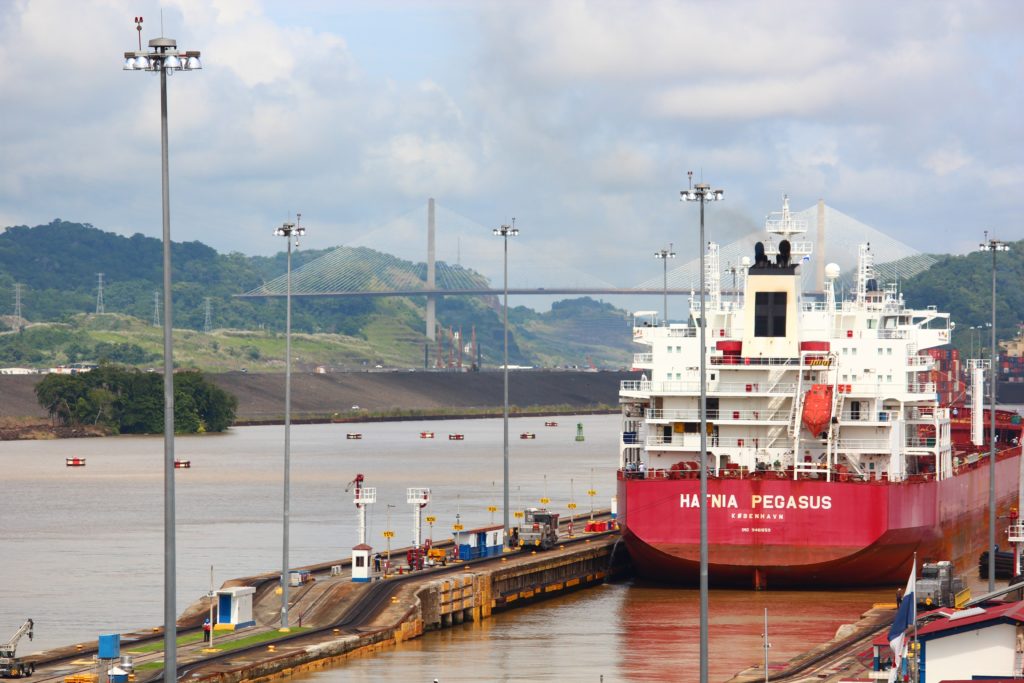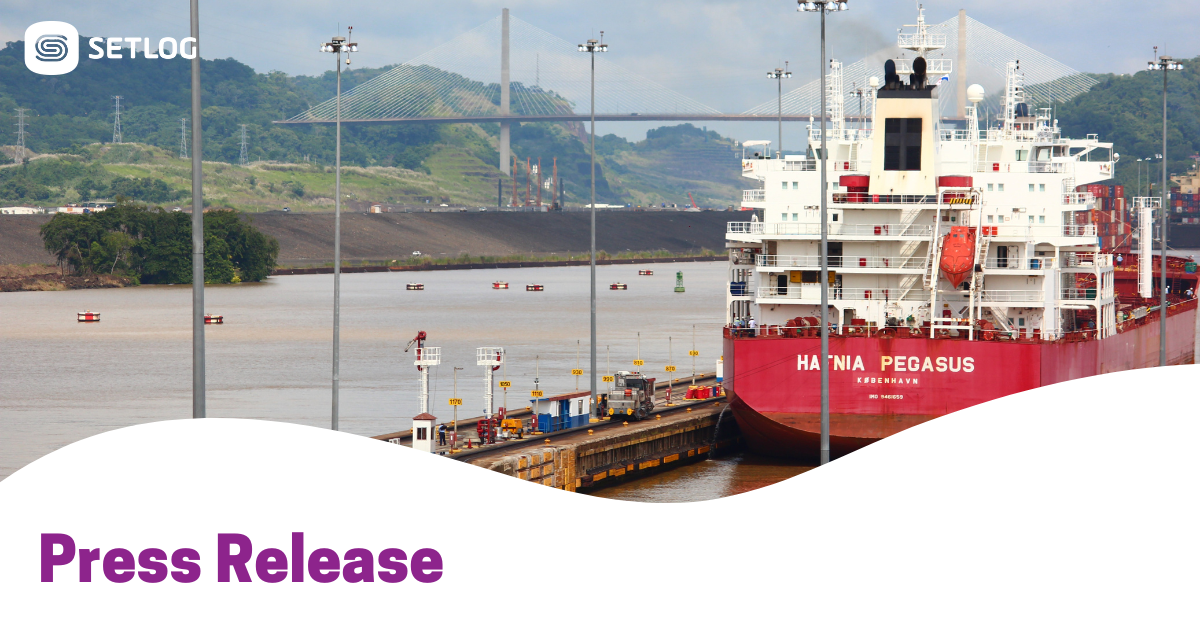- Droughts like the current one in Panama lead to delivery delays and increased logistics costs.
- SCM experts at Setlog advise policymakers and companies to take precautions quickly – including infrastructure projects.

(Bochum / New York, August 25, 2023) Delivery delays, bottlenecks, bigger safety stocks, growing logistics costs: In future, climate change will lead to more supply chain disruptions and negative effects on the economy than ever before. This is the prediction of the SCM experts at the Bochum-based software company Setlog on the occasion of the current passage restrictions for ships in the Panama Canal. Even if the situation in Central America does not have a noticeable impact on the German economy, the experts advise politicians and companies to take precautions for the future – for example, for the transport of raw materials and goods on waterways during low water.
Background: Currently, dozens of cargo ships are jammed on both sides of the Panama Canal due to a lack of water for the lock processes of waiting ships caused by a long drought in Central America. The responsible authority therefore limited the daily transits to 32 ships from the end of July to the beginning of September. Normally, 36 ships are allowed to go on the waterway each day. The ship draft is limited to 13.41 meters. As a result, traffic jams are forming, and the media report waiting times of up to three weeks.
According to experts, a total of 200 million liters of water are needed for each passage of a ship through the twelve locks in the 80-kilometer-long canal. However, because the region around Lake Gatun, which among other lakes feeds water to the locks, only has had half as much rainfall this year as normal, the Panama Canal Authority decided to take those measures.
The waterway plays an important role in supplying the U.S. economy. Therefore, some companies already sounded the alarm about rising prices for containers as well as transport rates for certain relations on the spot market. Setlog’s cooperation partner Shippeo can also confirm this. Since there is no peak season and enough capacity is available, the Paris-based transport tracking experts assume that many companies that still have time for deliveries will work around the problem. They are changing transport routes and modes.
Setlog board member Ralf Duester can also confirm this after evaluating the flow of goods from US customers in Setlog’s SCM software OSCA: Around 20 percent of the volume that was originally to be unloaded on the East Coast has been rebooked to the West Coast – primarily to the major ports of Long Beach and Los Angeles. From there, the shipments are transported by rail or truck or, if there is flexibility, to other distribution warehouses. These are mainly consumer goods. For Germany, on the other hand, the Panama Canal congestion and its consequences have virtually no impact, according to Duester: “Not even two percent of exports from German ports are destined for the Pacific coast in North and South America,” he says.
However, he takes the stress test for logistics chains in Panama as an opportunity to draw the attention of politicians and companies to the fact that extreme weather events such as droughts or storms will disrupt supply chains more often and more violently in the future. “Climate change has arrived in logistics. The forecasts of climate researchers show that it is high time for politicians and companies to take precautions,” emphasizes Duester.
According to Duester, Germany must increasingly prepare for low-water situations in inland navigation. The Rhine, for example, must be a particular focus of political attention. In Duisburg alone, Europe’s largest inland port, around 42 million tons of freight were handled in 2022. In this context, Duester recalls the difficult situation in the Rhine in the summers of 2018 and 2022. Admittedly, only five percent of goods are transported by inland waterway vessel in this country. “But analyses by the Kiel Institute for the World Economy on the consequences of low Rhine levels have shown that industrial production in Germany falls by around one percent with 30 days of low water in a month. For some sectors, such as the chemical industry, supply by barge is critical,” he says.
He advises companies, on the one hand, to focus on the digitization of supply chains and, on the other hand, to organize transport alternatives such as land bridges, i.e. the transshipment of goods from ship to rail or truck. In his view, innovative ships must also be used. In this context, he refers to the “Stolt Ludwigshafen” ship, which was bought by BASF in May 2023 and will be able to pass the Rhine even at extremely low water.
As the economy without a doubt should continue to rely on inland waterway ships, politicians need to turn the demands from the industry into reality, according to Duester. They need to consider multiple topics – above all the improvement of water level forecasts as well as the provision of current depth data, the search for hydraulic engineering alternatives and the optimization of unloading points on the Middle and Lower Rhine.
Contact Setlog:
Nora Breuker, Digital Marketing Strategist
Setlog GmbH, Alleestraße 80, 44793 Bochum, Germany T +49 234 720 285 78, n.breuker@setlog.com, setlog.com
Contact impact media projects:
Thilo Jörgl, impact media projects GmbH, Eckherstraße 10b, 85737 Ismaning
T +49 89 215384612, thilo.joergl@impact.mp, impact.mp
About Setlog
Setlog Holding is a provider of Supply Chain Management (SCM) solutions. The central product is the cloud-based software OSCA with the solutions Procurement, SRM, Global Logistics, CSR and Quality Control. OSCA, which stands for “Online Supply Chain Accelerator”, is used by more than 150 brands in the apparel, electronics, food, consumer goods and hardware sectors. With the help of OSCA, companies connect their supply chain partners, suppliers and service providers to optimally coordinate their supply chain and efficiently manage supply chains.
Setlog GmbH is a wholly owned subsidiary of Setlog Holding AG. The company was founded in 2001 and is today one of the leading providers of SCM software with over 40,000 users in 92 countries. The software house employs 60 people at its locations in Bochum (headquarters), Cologne and New York. www.setlog.com
